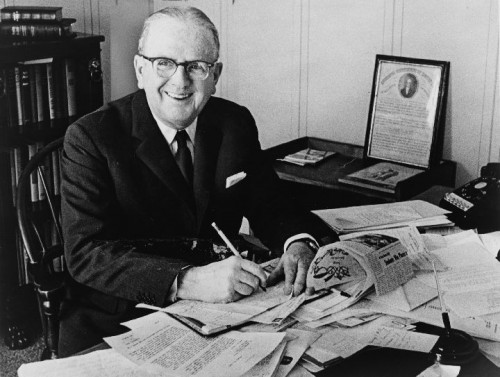
We are pleased to present the second and final part of Andrea Zimmerman’s interview with Justin and Lindsey Holcomb about their new book Rid of My Disgrace: Hope and Healing for Victims of Sexual Assault. To read part one of the interview, go here, and for those who missed Andrea’s into the first time, we’ve reprinted here:
Even in the few short months since its release, Rid of My Disgrace has proven to be an invaluable and much-needed resource. So I was truly honored to have the opportunity to speak with Justin and Lindsey about it in a bit more depth. Through my work with Side by Side, helping single mothers here in Pittsburgh through mentoring and practical support [to hear Andrea’s breakout session on this topic from our recent conference, click here], I’ve been struck afresh by both the devastation that sexual assault wreaks on society, as well as the egregious lack of good resources for its victims, esp those that are faith-related. Justin and Lindsey’s answers to my questions represent nothing less than a beacon of hope for anyone hurting from abuse (even if they can’t/don’t buy the book), a fresh and utterly vital perspective on this dark corner of human experience. So to women and men who are victims of sexual abuse as well as those who counsel them, I couldn’t recommend it more.
What experiences in your life, if any, helped or inspired you to write this book? How has your academic and pastoral experience informed Rid of My Disgrace?
Our experience in the area of abuse, both personally, professionally, and pastorally, led us to write this book. When Justin was 12, he was assaulted by a member of his extended family. So, he knows personally what victims are experiencing.
Lindsey has served for years both counseling victims of sexual assault and training leaders to care for victims. She worked at a sexual assault crisis center where she provided crisis intervention to victims of assault and conducted a variety of training seminars to service providers. Lindsey also worked at a domestic violence shelter. Many of the women she served were also victims of sexual assault. Her graduate research was on sexual violence and public health responses.
Justin has served in ministry for almost twenty years and has counseled numerous victims of sexual assault. He has taught theology at Reformed Theological Seminary since 2001. Justin has also taught courses on sexual violence in the Sociology and Religious Studies departments as well as in the Studies of Women and Gender program at the University of Virginia.
In writing this book, we combined our experience of counseling victims with biblical and theological studies and up-to-date academic research.
What would you say to people who are mad at God, who want to know why He would let this happen to them?
First, we have no idea why God let it happen. Any attempt to answer why usually end up in spiritual platitudes or bad theology.
Second, we learn from the Bible and Jesus that God understands the pain you experienced, that he mourns and grieves for the sins done against you, and that he is angrier than you are for the sins done against you.
Third, I (Justin) can tell you from personal experience in this issue that God is so creative and sovereign that he bends the evil intended for you destruction and uses it for your good (Gen 50:20 and Romans 8:28).
Fourth, God can handle your emotions. Don’t run from him in anger but toward him. The intent of the evil done against you is to create distance between you and God, the only one who can bring real healing to you. Please realize this and bring your emotions and thoughts to God. The psalms are filled with a wide spectrum of emotions related to God: shame, fear, sadness, reverence, anger, love, joy, and doubt. The psalms provide release, rationality, and relief for our emotions. You won’t find yourself blamed, laughed at, mocked, or punished. You’ll find yourself embraced by the love of a God who meets you in your pain.
How do self-help and -healing strategies negatively impact those with low self-esteem?
If one is devastated by being sinned against, their own sin, or personal failure, to be told they need to rise above the effects of that will likely create a snowball effect of shame. Hurting people need something from the outside to stop the downward spiral. That “something” is God’s grace and unconditional love.
Self-help strategies, such as positive self-statements and techniques, have been found to be ineffective or even harmful by making people with low self-esteem feel even worse about themselves in the long run. These statements and techniques boost self-esteem briefly but then backfire by reinforcing the person’s negative self-perception they were trying to change.
For positive self-statements to work, the people saying them need to believe them. But that’s the very problem the techniques are trying to address. When people say things to themselves that they don’t believe to be true (“I am lovable” or “I’m not disgusting and dirty”), this eventually leads people to think of examples of their identity that contradict the statements instead of thinking of evidence to support them. Then their negative self-assessment is then reinforced. When people feel deficient in some quality, positive self-statements usually highlight the discrepancy between their deficiency and the standard they would like to meet. Tragically, self-help ends up rubbing the person’s nose in the very thing they are ashamed of or insecure about.
One example we experienced was particularly disturbing. We counseled a woman who felt filthy, ugly, dirty, unwanted, and deserving of the abuse she experienced. She was told by a self-help book to look at herself in a full-length mirror and to then write words she wanted to feel about herself on a post-in-note and stick it around her image in the mirror. She wrote the words “beautiful,” “clean,” “desirable,” and “deserving good things” on placed them around the image of her self in the mirror. Then she stared at her self and glanced at the words, hoping that the association would take hold. It did the opposite. She felt mocked by these words. She felt like the butt of a cruel joke. She ends up cutting herself that night, not loving herself.
Self-help is shallow and can’t get below the surface where the pain of trauma lurks. What victims need is the identity bestowed on them from their creator and redeemer. They need to hear the identity for them over and over again that the Father purchased at the cost of his Son’s life. Anything else is just a homemade ritual.
Can you give us a taste of the hope we might find after reading the book?
“What happened to you was not your fault. You are not to blame. You did not deserve it. You did not ask for this. You should not be silenced. You are not worthless. You do not have to pretend like nothing happened. Nobody had the right to violate you. You are not responsible for what happened to you. You are not damaged goods. You were supposed to be treated with dignity and respect. You were the victim of assault and it was wrong. You were sinned against. Despite all the pain, healing can happen and there is hope” (Rid of My Disgrace, page 15).
The disgrace that results from sexual assault has a way of grinding people down and heaping huge burdens on them. Because of it people feel lonely, filthy, worthless, repulsive, hopeless, and unwanted. Our hope is that God will use the clear Gospel message of the book to eliminate that disgrace and its effects. What victims need is for God to be strong when they are weak and to be close to the brokenhearted. We want people to experience God fulfilling his promises to them. We pray that God uses the book to apply the grace from Jesus deeper than the wounds people have experienced.
In Rid of My Disgrace we address the effects of sexual assault with the biblical message of grace and redemption. Jesus responds to your pain and past. Your story does not end with the assault. Your life was intended for more than shame, guilt, despair, pain, and denial. The assault does not define you or have the last word on your identity. Yes, it is part of your story, but not the end of your story.
The gospel of Jesus offers new emotions to victims and how they relate to the current emotions victims experience. Grace offers to victims the gift of refuting distortions and replacing their condemning, counterfactual beliefs with more accurate ones that reflect the truths about God, themselves, and God’s grace-filled response to their disgrace. God’s grace dismantles the beliefs that give disgrace life.
The message of the gospel redeems what has been destroyed and applies grace to disgrace.

COMMENTS
4 responses to “The Grace of God and the Hermorrhage of the Soul: An Interview with Justin and Lindsey Holcomb, Part 2”
Leave a Reply
















Apart from a wonderful interview with the Holcombs, excellent use of Masaccio’s work as the cover art for the post. Deeply appropriate for the topic—- Masaccio, “Expulsion of Adam and Eve,” from the Brancacci Chapel, c. 1424-7. Santa Maria del Carmine, Florence. Fresco. Italian,
Renaissance Period.
Completely exposed in the light of God, Adam and Eve are, for the first time, aware of their nakedness and in shame. Emotional realism so profound, to be imitated by Michelangelo in the Sistine Chapel.
Appreciate the attention to detail, mbird.com.
I think 1 of your ads caused my web browser to resize, you might would like to put that on your blacklist. The Grace of God and the Hermorrhage of the Soul: An Interview with Justin and Lindsey Holcomb, Part 2 | Mockingbird is really a cool name for a blog BTW 😉